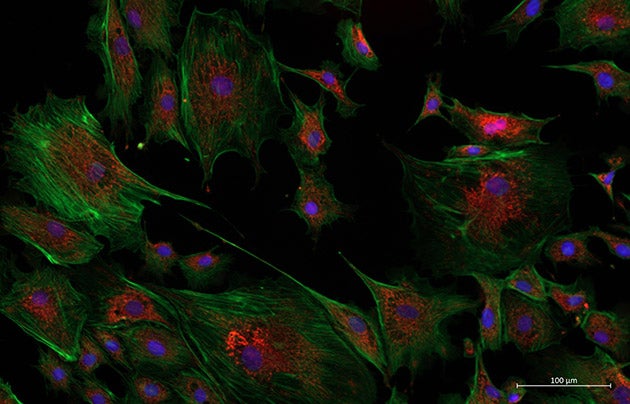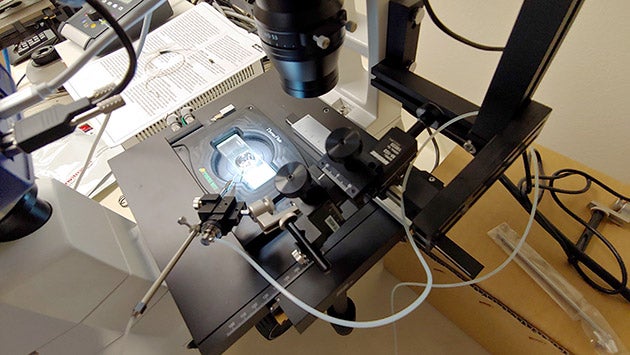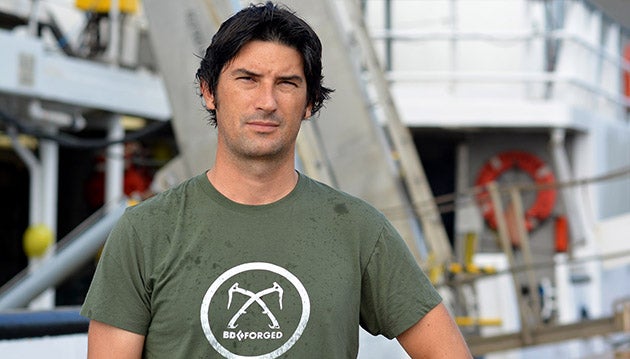Preparing for a New Facility at BIOS

A cell viewed by BIOS molecular biologist Julius Barsi using a compound microscope, which will be among the new equipment included in his new transgenic facility at BIOS. Using fluorescence, the cellular nucleus (containing genetic information) shows up in blue, the cytoplasm (jelly like material surrounding the nucleus) in red, and the cytoskeleton (which gives shape and support) in green. Photo by Julius Barsi

A microscope destined for the new transgenic facility at BIOS. Photo by Julius Barsi
Once operational, Barsi and colleagues will be able to perform genetic manipulation on a variety of marine organisms, such as sea urchins. The experiments will address fundamental questions in molecular biology, advancing scientists’ understanding about life science in general, Barsi said. Barsi joins other BIOS scientists who focus aspects of their research on molecular biology, including Leocadio Blanco-Bercial, Amy Maas, and Rachel Parsons.
Barsi employs marine animals as model organisms to decipher the mechanism that controls gene expression. The genetic code is common to all organisms, including those that are structurally different. “Therefore, we have reason to believe that the control system is also a shared feature,” he said. “That is why scientists study these organisms to answer fundamental biological questions relevant to human health, such as why mutations outside of genes often lead to cancer.”
When complete, the new facility will feature next-generation software and computing power, three state-of-the-art microscopes, and four video cameras. It will also have temperature-controlled specimen chambers and a three-dimensional micromanipulator that enables an injection needle to be precisely positioned within a cell. Finally, the facility will include a computer-controlled, application-specific device for manufacturing precision syringes in-house.
The facility will “open the gate into molecular research in Bermuda,” Barsi said. “From an institutional perspective, this represents a transition from occasionally using molecular biology as a tool, to acquiring the capability to investigate biological processes at the molecular level.”

Barsi arrived at BIOS in summer 2019 and has made the development of a lab his top priority. Once operational, Barsi and colleagues will be able to perform genetic manipulation on a variety of marine organisms, such as sea urchins. The experiments will address fundamental questions in molecular biology, advancing scientists’ understanding about life science in general, Barsi said.
